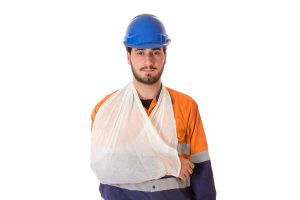Content Reviewed by: Tucker Clagett •
October.14.2018 Vertified Content
Oct 14, 2018 | Read Time: 4 minutes
This post covers various issues that arise when an injured employee returns to work after a workers’ compensation accident.
Returning to work after an injury is a major milestone. Many injured workers’ comp claimants cannot ever return to work. Their whole life changes, and that can be very hard to handle.
If you are able to return to your old job, you are one of the lucky ones.
When you are injured on the job and cannot work, you lose money. Workers’ compensation benefits are not as much as your regular wages. Workers’ compensation is always a money losing game and your goal should be to return to work as soon as possible.
But when you go back to work, you have to be careful about a few specific issues.
Can You Do the Job?
It is all well and good to say you can return to work, but the proof will be what happens when you get there. What if you cannot physically do it?
What I tell all my clients is try to do it. Give it a serious effort. You will soon know if you can do the job or not.
If you cannot do it – stop. Do not hurt yourself again.
But try it first. And try hard. It is in your best interests to make this work.
Keep in mind how hard it is going to be to find another job in our current economy. It is ALWAYS better to go back to work at your old job – as long as you can physically do it. There is no guarantee you will find a new job. And if you do find one after an injury, it will probably be for less pay.
Also, from a legal standpoint, trying and failing is better than not trying at all.
If you try and fail, we can ask to restart your benefits. You can tell the Workers’ Compensation Commissioner exactly what happened when you tried.
If you don’t try to do the job, you cannot testify to that, and the Commission will not likely have as much sympathy for our position. The Commission likes to see people who at least try.
If you find that you cannot do the job, call me immediately.
Restrictions
Often the doctor will send you back to work, but with restrictions. They may limit what you can lift, or how often you can sit or stand, or how much you can kneel, or climb ladders.
If that happens, you must give your employer the written restrictions and make sure they follow them. Do not allow yourself to be pressured into doing something against doctor’s orders. You are the one who will pay the price for that. Document any violation of the doctor’s restrictions and report them to me.
Ask your employer for any light duty if the doctor says you can do it.
Do not assume there is no light duty. Ask your employer. And document who you talked to and the date and time of the phone call. If they tell you they have no light duty, then your workers’ compensation benefits should continue.
If they do offer you light duty, you almost certainly have to take it. If you do not, you may be fired and your workers’ compensation benefits will be cut off.
This would be very bad. No matter how silly it sounds, if they will pay you to do it – and it does not violate your physical restrictions, you do have to do that job. I had a client once who had to sit and count paperclips – literally. But he got paid, so he had to do it.
Temporary Partial Disability
If you go back to work but you making less than your average weekly wage before injured, the insurer must pay you temporary partial disability benefits. That is more completely explained in this post.
Return to Work is not Maximum Medical Improvement
At the end of your workers’ compensation case, when you reach maximum medical improvement, we can pursue your permanent disability benefits (what most people call their “settlement”).
Being released to return to work is not usually the same as reaching maximum medical improvement. You probably still have to see the doctor for follow-ups. He or she is going to want to see how you fared after returning to work.
When the doctor has fully released you from their care, you are at maximum medical improvement and we can go after your permanent partial disability benefits. Usually, the doctor tells you “come back if needed” or “released prn.” If this happens, let us know and we can start that final process.
As always, please call me if you have any questions or concerns after reading this information.
Next Steps
Want to know more? Discover what you need to know about workers’ compensation in Maryland. Click here to see our Free Legal Consumer Guide to Maryland Workers’ Compensation and get answers to your questions today. Know your options. Be informed. Protect yourself.
Need a workers’ compensation attorney? Please contact us for a consultation today if you need an experienced workers’ compensation lawyer in Waldorf and Lexington Park for your legal case.
Like our blog? Subscribe to our email newsletter and stay informed!






